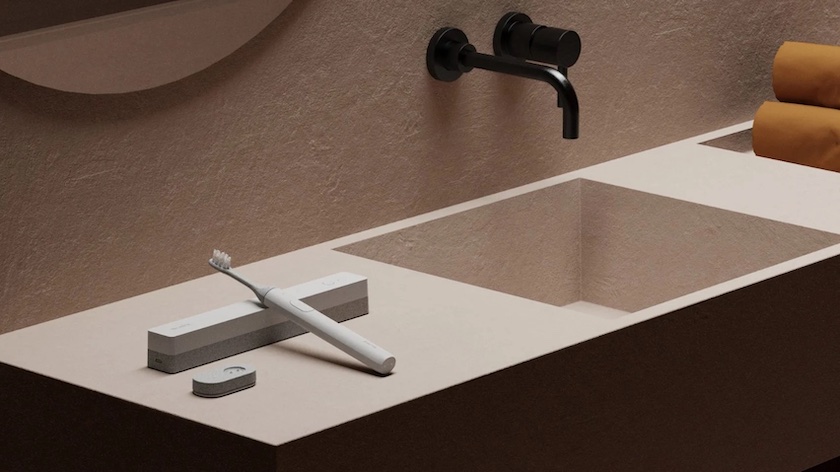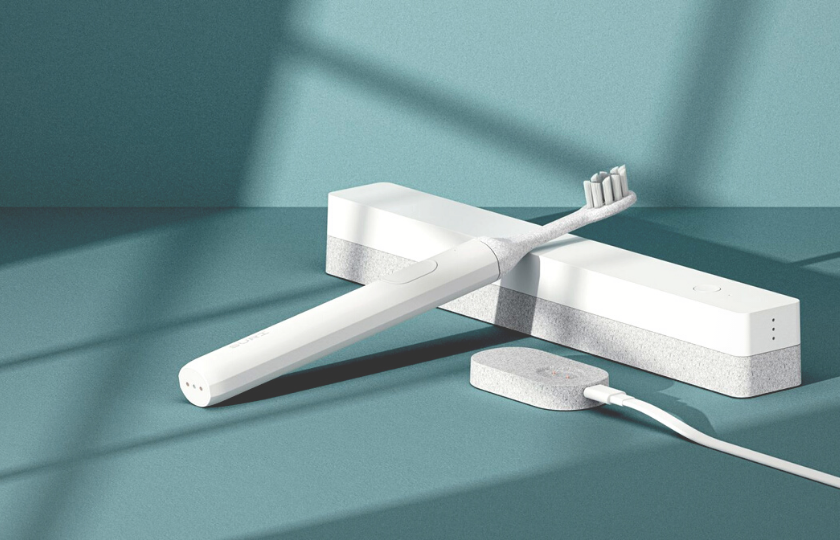Traditional toothbrushes are usually made from plastic, with bristles made from nylon. These materials aren’t biodegradable and end up as waste in landfills or waterways for hundreds of years.
In a move to reduce plastic waste, London-based toothbrush company, Suri, has developed a fully recyclable modular toothbrush with a body made from aluminium and brush heads made from plant-based materials.
Mark Rushmore and Gyve Safavy, co-founders of Suri, told Dezeen that they designed the Sustainable Sonic Toothbrush after discovering that every plastic toothbrush ever owned in the world still exists.
“Over the last few decades, electric brushes haven’t meaningfully changed; only novelty features, such as Bluetooth-enabled apps, have emerged on the market under the guise of innovation,” said Rushmore.
He continued that most electric toothbrushes can’t be recycled because they are made of bulky composites of plastic that are “welded shut”.
“It’s no surprise that every year over four billion brushes – including electric ones – are thrown away and end up either in landfill or in our oceans,” he added.
With an aluminium chassis and replaceable bristle heads made from starch and castor oil, the Sustainable Sonic Toothbrush is fully recyclable.
Customers can return the used brush heads to the company via the post using pre-paid compostable paper bags provided upon purchase.

Alternatively, the brush heads can also be recycled at home by removing the bristles and disposing of them in a waste bin where the company says they will eventually break down in a few years.
The company hopes to make replacing brush heads as convenient as possible and discourage its customers from returning to disposable brushes out of convenience.
Meanwhile, the aluminium body can be sent back to Suri for repair or have its rechargeable Li-ion batteries replaced once they run out. The batteries claim to last for up to 30 days without being charged.
Once a customer’s battery can no longer be recharged, the owner can send back the brush to the company to replace the battery or complete any other repairs, if necessary, Safavi explained.
Unfortunately, despite the product’s sustainability potential, the brand sources its materials from China, resulting in a larger carbon footprint than it would be if the toothbrushes were locally manufactured.
“All components are sourced in China, but we found that we could reduce our scope three emissions by not shipping parts to the region to assemble and then ship on once again,” said Rushmore.
“We are looking to make production more local, but this was the most optimal way to launch with sustainability in mind.”
The product is sold online.



